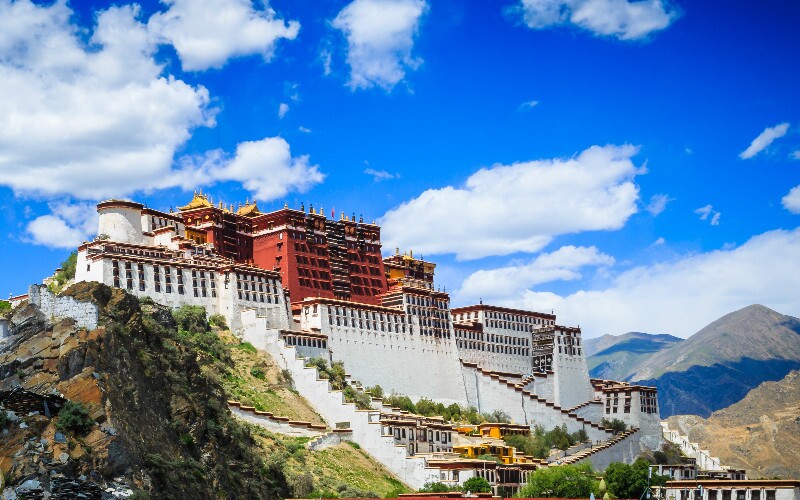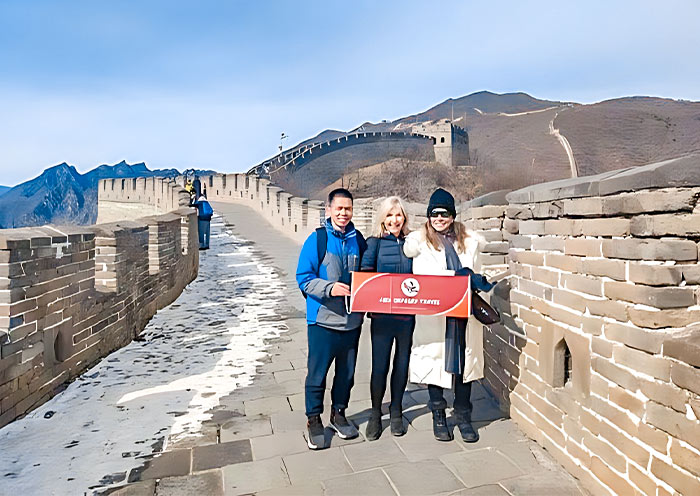20 Pro Pieces Of Advice For Picking China Tour Websites
20 Pro Pieces Of Advice For Picking China Tour Websites
Blog Article
Top 10 Tips On How To Deal With copyright Goods When Shopping In China
1. Be aware of the high-risk items: Branded goods like watches, bags electronic devices, as well as designer clothes are often counterfeited. Shop for these items with extreme caution.
Pro: Keep your eyes on copyright.
Con: Uncertainty over the authenticity of the product could lead to suspicion.
2. Find authentic product details from reputable sources
You should familiarize yourself before shopping with the brand, its logo, details about materials and packaging.
Improves your ability to detect subtle differences between genuine products and copyright ones.
Con: Time-intensive for those who don't know much about the products.
3. Trusted Stores
Tips: If you're looking to buy high-value products, you should to stick with official brands or reputable shopping malls such as Beijing China World Mall or Shanghai Plaza 66.
Pro: The authenticity of the item is guaranteed and includes warranties and receipts.
Cons: Prices may be more expensive than in small and street-markets.
4. Labels and Tags: Examine them
Check for low quality products, misspellings, or inconsistent fonts on packaging and tags.
Pro: A fast method to spot poorly-made counterfeits.
Contra: Counterfeits of high-quality could mimic authentic details closely and make it difficult to detect.
5. Be wary of "too too good to be real" prices
The cost of luxury items are usually quite affordable. This should trigger the alarm. It is rare to find luxury items at prices that are lower than the retail value.
Pro: Helps to avoid obvious frauds.
Pros: Some sellers employ moderate pricing to make counterfeits more convincing.
6. You can ask for authentic certificates
Tips: When purchasing items such as jade, antiques, branded goods, request documentation that proves authenticity.
Pro: Increases confidence when buying.
Con: This method can't be trusted since certificates are also forgeries.
7. Check Before You Purchase
Make sure you test the electronics and high-value products before you buy them.
Pro Tests the its functionality and high-quality.
Cons: The seller might not allow for testing or the tests might only be superficial.
8. Purchase Antiques Only from Experts
TIP: An antique requires an extensive understanding and a professional verification. If you're not sure of their authenticity, stay clear of them.
Pro: It decreases the chance of being scammed by a fake or replica.
Cons: You could be missing out on objects that look appealing but aren't authentic.
9. Make use of an Local Guide you can Trust
Tip: Consult an expert in your area, or ask a person who is who is familiar with your area to find the most reliable vendors.
Pros: It saves time and minimizes the risk of shopping in foreign markets.
Con: Your expenses could be increased by guides who expect to receive a tip or a fee.
10. Be awestruck by your instincts
It is best to leave a vendor if something doesn't feel or feel right. It could be the attitude or quality of the item, the cost, etc.
Pro: You are protected from an unintentional purchase.
Con: Your over-cautiousness could result in you missing the best deals.
Benefits of Avoiding copyright
Durability: Genuine goods are stronger and give better value for money.
You can rest assured that you won't be scammed or deceived.
Legal Safety Certain countries punish travelers who bring home copyright products.
Supporting genuine products is crucial to maintaining ethical business procedures.
Pros and Cons of avoiding copyright products
Higher Costs: Authentic items are often much higher priced.
Limited availability : Genuine products may not be readily available in street markets or smaller shops.
You may have missed some excellent bargains. Certain counterfeits are of good quality, and are a good value for money.
These guidelines can help you navigate the Chinese shopping experience with confidence. You'll be able to make informed choices about whether you're buying replicas or authentic products. Read the best visit this must-see attraction for blog advice including the color of dress in china, temple of confucius one of the three largest ancient architectural complexes, jiuzhaigou, shopping in tibet, chaotianmen dock%EF%BC%8C a major water transportation hub in chongqing, the master of nets garden the hall of ten thousand books, chinese wood carving originated in neolithic period, xiang cuisine.html, honey lake country club, chinese knot which has a long history and a symbolic meaning and more.
Top 10 Tips On Visiting During The Season When You Visit Famous Temples In China
1. Visit the temples during Off-Season(Autumn/Winter).Tip. You should consider visiting the famous Chinese temples during times in cooler weather (usually from November through February). There are less tourists, and the temperature is cooler.
Pro: The experience is less crowded and more contemplative.
Con: The weather might be colder than usual, which could make outdoor temple tours less fun.
2. Be prepared for extreme weather conditions
Tips: Temperatures during different seasons can be very different. Winter can be very cold, whereas summers can be hot. Pack according to the forecast for the weather.
Pro Tip: Be prepared for all weather conditions, and enjoy your journey in comfort.
The packing process for extreme seasons can be a hassle especially if you're travelling in a small amount.
3. Spring and Summer Visits for Vibrant Flora
Tips: If you go to temples between spring and summer, you can enjoy beautiful gardens with blooming flowers and lush landscapes.
The beautiful scenery adds to the enjoyment of visiting temple grounds.
Con: Summers tend to be extremely hot and can get crowded.
4. Take into consideration festivals, special events and other activities
You should plan your trip around traditional festivals like Chinese New Year or Mid-Autumn Festival. These festivals offer particular rituals, ceremonies, and a chance to experience the temple's vibrant cultural life.
Pro The temples are typically lively and full of traditional activities, giving visitors the most unique experience.
Con: Temples are often very crowded. The cost of accommodation can also rise during festival seasons.
5. Beware of Peak Holiday Seasons
Avoid visiting temples during the peak tourist season (e.g. Chinese Year of the Pig, Golden Week October) as they can be packed.
Pro: Peaceful experiences without crowds, providing a more spiritual experience.
Cons: Some special events may be skipped during busy times.
6. Check for Winter Temple Closures
Some temples are closed or may only be open for a limited number of hours during winter. Be sure to check before visiting.
Benefits: It eliminates trips that aren't needed and lets you plan other activities in advance.
Con: You could be disappointed if some temples are closed for a period of time or are shut down completely due to renovations.
7. Early Morning Visits to the Beach During the summer
Be sure to arrive early when you plan to visit in summer, to avoid the intense heat that occurs at midday. Most temples are open in the morning and evening, which means there are less people and less heat.
Benefits You can enjoy an enviable, cooler and more peaceful environment without the noise of.
Con: Needs a early rise-up time, which might not be suitable for all.
8. Be Prepared for Rain in the summer.
In the southern part of China, heavy rains can be experienced during summer months. Bring rain gear and an umbrella if visiting during the summer.
Pro: The temple is still gorgeous even if it's pouring rain.
Con: Rain can interfere with outdoor activities, and make temples slippery.
9. In autumn, you can visit temples in mountainous areas
Tip: Visit temples in mountainous regions like Mount Wutai (or Mount Emei) in autumn. The temperature is cool and the autumn leaves make an incredible scene.
Pro A: Cooler temperatures are perfect for exploring nature and hiking.
Con: Popular mountain shrines continue to draw large crowds at weekends and during holidays.
10. Be aware of the Lunar Calendar when planning specific occasions
Tip: Many Chinese temples use the lunar calendar. Many events or rituals are linked to lunar calendar dates. The calendar can be used to plan your itinerary and to attend important occasions like the Lantern Festival or Buddha's birthday.
Pro: Unique cultural experience and deeper insight into local rituals of the spiritual.
Con: It can take more time to plan and research according to the lunar calendar and some events might not be aligned with your travel dates.
The advantages of a seasonal trip to Chinese temples
Fewer crowds: Visits during the off-season are more peaceful and more contemplative.
Cultural events: These festivals provide a deeper understanding of the local culture and religion practices.
The beauty of the landscape. In the spring or autumn, you will provide stunning scenery. The beautiful gardens around temples are another great option.
Exploring Tempel is more enjoyable in the autumn and winter months.
Pros and Cons of Seasonal Chinese Temples Visits
Unpredictable weather: Winter could be extremely cold, and the summer too hot. This could affect your satisfaction.
Temple Closures: Some temples close during extreme weather, or when they are operating with limited hours.
The Temple Can Get Crowded The Temple Can Get Crowded: Holidays and festivals that are popular can attract large crowds. This makes it difficult to experience the peace and tranquility in the temple.
Certain events are restricted - certain events and ceremonies are only in certain seasons.
If you choose the best time to visit and making plans accordingly, you will have a better and meaningful time at China's famous temples. Understanding the changing seasons will assist you in getting the most enjoyment from your visit, regardless of whether you want peace and quiet or cultural celebrations. Have a look at the best uncover details about this destination for site recommendations including binhai aircraft copyright theme park in tianjin, chinese wood carving originated in neolithic period, temple of confucius one of the three largest ancient architectural complexes, chaka salt lake, entertainment in hong kong, basha miao village, wang zhaojun one of the four beauties in ancient china, four gentlemen in chinese culture, chinese furniture the development history of chinese furniture, the top 4 movies about kung fu and chinese culture and more.